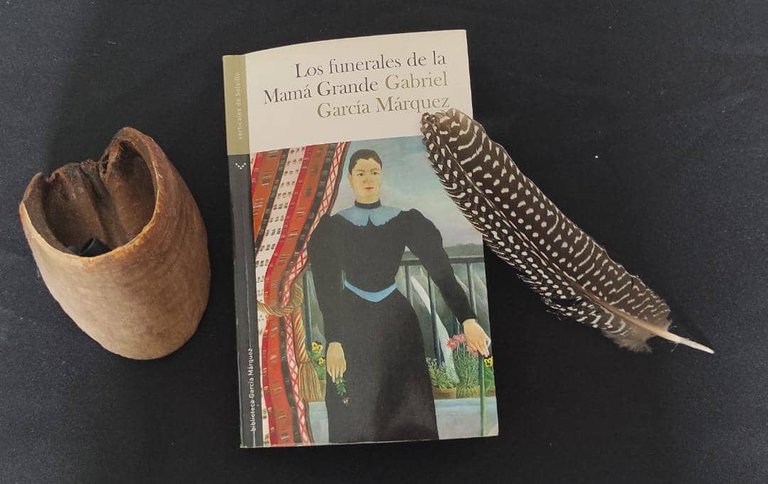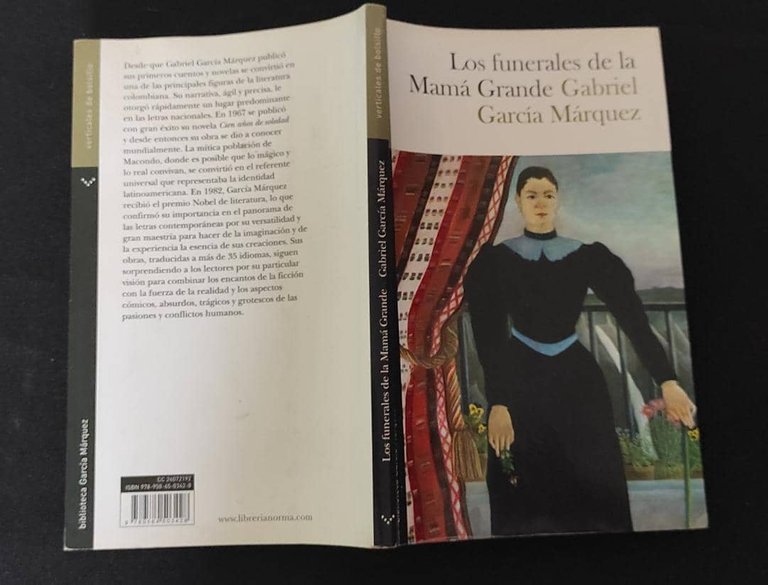

Nacer para ser lector
ME GUSTA CREER QUE NACÍ para vivir leyendo; eso me ayuda a ocuparme de la lectura, me mantiene pensando en el próximo libro. En mis inicios de lector devoré muchos textos, pero solo fueron esos, páginas por donde pasé la vista; no recuerdo haberme detenido ante un pensamiento profundo del autor, ante una frase interesante y a veces no me detenía ni siquiera en las comas o en los puntos; mi desordenado entusiasmo solo quería avanzar hasta el fin para empezar un nuevo libro.
No digo que eso no me ayudó, porque sirvió para que luego reflexionara sobre el acto de leer y comprendiera que ser lector no es terminar un libro y comenzar otro, no, es no querer finalizar el que estás leyendo para seguir disfrutando, para que la magia en la que estás envuelto no te abandone. No sé con cuántos autores me ha pasado que al finalizar su obra, vuelvo a empezar, porque lo bueno se debe disfrutar por partida doble; de los que recuerdo están, El viejo y el mar, de Hemingway; La perla, de Steinbeck; Seda, de Baricco; El perfume, de Süskind; Alicia en el país de las Maravillas, Pinocho y la obra que tengo de Jairo Aníbal Niño, Rodari y varios de literatura infantil.
Ahora ando metido en Los funerales de la Mamá Grande, de Gabriel García Márquez, ocho cuentos de los que ya había leído tres en internet. No es mi costumbre hacer reseñas porque, repito, mejor que un resumen, una sinopsis o un punto de vista, es la lectura del libro, y a eso siempre los invitaré.
Lo que sí me gusta es destacar aquello que encuentro en la obra y por lo que considero vale la pena su lectura. Por ejemplo, en los primeros cinco cuentos de este libro, encontramos, en este orden, unas situaciones tan aparentemente inusuales como: la visita de una madre a su hijo muerto, a un cementerio de otro pueblo; la sacada de una muela a un alcalde por un odontólogo; el robo de unas bolas de billar; la construcción de una jaula para pájaros, la vida de una viuda; aclaro que estas situaciones pertenecen cada una a un cuento.
Dichas situaciones tan comunes y corrientes no provocarían ningún interés si la ficcionalidad con que fueron narradas no las hiciera interesante. Las cinco historias ocurren en un pueblo, podría decirse que en el mismo pueblo, pero en días diferentes; a los personajes los une la tragedia y podría decirse que la misma, porque para los pobres las tragedias son siempre por el mismo motivo; esta atmósfera se mantiene para darle unicidad al libro, incluso algunos cuentos funcionan como continuidad del anterior. Quisiera destacar algunos aspectos de los tres primeros cuentos.
La visita de la madre a su hijo, al que mataron en otro pueblo, nos deja con la inquietud de si el chico fue o no malo; por la madre, la narración nos hace pensar que no; por las acciones del cura, la narración nos hace pensar que sí; lo cierto es que es un juego de extrañezas que le da solemnidad al misterio de la visita de la madre, un hecho tan común como ese, hace que a través de las palabras, el calor insoportable del pueblo no le impida a la gente asomarse a las ventanas para curiosear el dolor de la adolorida madre. El diálogo entre el alcalde y el odontólogo, es suficiente para decirnos que aquello es una dictadura, que el médico representa el rencor del pueblo, y aunque se venga un poco al sacar la muela al verdugo, sin anestesia, deja en el aire la sentencia de “un día de estos”. En cuanto a las bolas que se pierden de un billar, hay un misterio detrás del misterio; el primer misterio pertenece al pueblo, que no sabe quién es el ladrón; el segundo misterio es para el lector porque este sabe quién es ladrón, pero al parecer hubo otro ladrón que se llevó varios pesos, cosa que el lector, en su interior, dice que no, porque el ladrón al que él está siguiendo en la narración, jamás encontró dinero.
Pero no quiero hacer más largo este artículo para no cansarlos, insisto en que lo ideal sería que leyeran el libro, es corto, bueno y le hace creer a uno que la lectura es lo mejor del mundo.
Gracias por su dedicación.

Born to be a reader
I LIKE TO BELIEVE I WAS BORN to live reading; it helps me to occupy myself with reading, it keeps me thinking about the next book. In my beginnings as a reader I devoured many texts, but they were only those, pages where I passed my eyes; I don't remember stopping at a deep thought of the author, at an interesting sentence and sometimes I didn't even stop at commas or periods; my disordered enthusiasm just wanted to move forward to the end to start a new book.
I'm not saying that this didn't help me, because it helped me to reflect on the act of reading and to understand that being a reader is not finishing a book and starting another one, no, it is not wanting to finish the one you are reading in order to continue enjoying it, so that the magic in which you are involved doesn't leave you. I don't know how many authors I have read that when I finish their work, I start again, because a good book should be enjoyed twice; among those I remember are Hemingway's The Old Man and the Sea, Steinbeck's The Pearl, Baricco's Silk, Süskind's Perfume, Alice in Wonderland, Pinocchio and the works I have by Jairo Aníbal Niño, Rodari and several books of children's literature.
Now I'm reading Los Funerales de la Mamá Grande, by Gabriel García Márquez, eight stories of which I had already read three on the Internet. I am not in the habit of doing reviews because, I repeat, better than a summary, a synopsis or a point of view, is the reading of the book, and I will always invite you to do that.
What I do like to do is to highlight what I find in the book and why I consider it worth reading. For example, in the first five stories of this book, we find, in this order, such apparently unusual situations as: the visit of a mother to her dead son, to a cemetery in another town; the removal of a tooth from a mayor by a dentist; the theft of some billiard balls; the construction of a bird cage, the life of a widow; I clarify that these situations each belong to a story.
Such common and ordinary situations would not provoke any interest if the fictionality with which they were narrated did not make them interesting. The five stories take place in a town, it could be said that in the same town, but on different days; the characters are united by tragedy and it could be said that it is the same, because for the poor people tragedies are always for the same reason; this atmosphere is maintained to give uniqueness to the book, even some stories work as a continuity of the previous one. I would like to highlight some aspects of the first three stories.
The mother's visit to her son, murdered in another town, leaves us with the doubt of whether the boy was bad or not; because of the mother, the narration makes us think that he was not; because of the priest's actions, the narration makes us think that he was; the truth is that it is a game of strangeness, which gives solemnity to the mystery of the mother's visit, an event so common that it does not go unnoticed by the townspeople who, despite the unbearable heat, lean out of the windows to pry into the mother's pain. The dialogue between the mayor and the dentist is enough to tell us that this is a dictatorship, that the doctor represents the resentment of the people, and although he takes a little revenge by pulling out the tooth of the executioner, without anesthesia, he leaves in the air the phrase "one of these days". As for the balls that are lost from a billiard, there is a mystery behind the mystery; the first mystery is for the people, who do not know who the thief is; the second mystery is for the reader because he knows who the thief is, but apparently there was another thief who took several pesos, something that the reader, in his inner self, says no, because the thief he follows in the narration, never found any money.
But I do not want to lengthen this article so as not to tire you, I insist that the ideal is that you read the book, it is short, good and makes you believe that reading is the best thing in the world.
Thanks for your dedication.


Translated with www.DeepL.com / Translator (free version)Texto y fotografía de @jesuspsoto
The rewards earned on this comment will go directly to the person sharing the post on Twitter as long as they are registered with @poshtoken. Sign up at https://hiveposh.com.
Recuerdo en mis inicios, como era inevitable para mí, pasar la mayor parte del tiempo en la biblioteca de mi escuela. Era 😅 complicado salir de aquel mundo que los libros me ofrecían
Mi época de ratón de biblioteca fue en mi adolescencia; ahora sigo leyendo y procuro que sea todos los días. Gracias por tu amable visita.
Te cuento que leer es uno de mis placeres,nutre mi alma.
Qué bueno. Leer es una experiencia humana irremplazable, es el mejor invento que pudo crear la humanidad porque gracias a la lectura podemos volver al pasado, conocer el presente y tener la posibilidad de arriesgarnos en el futuro; cuando tú y no estemos, los libros seguirán y nuestros nietos podrán seguir conociendo, gracias a la lectura, lo que nosotros conocimos.
Este libro tiene, en mi opinión, algunos de los mejores cuentos de García Márquez.
La lectura me salvó de una de las peores amenazas de la infancia y la adolescencia: el aburrimiento.
Muy buen post.
Saludos.
Hoy lo termino de leer; me queda el que le da título al libro. Ciertamente es una lectura que merece repetición. Gracias por tan amable visita.